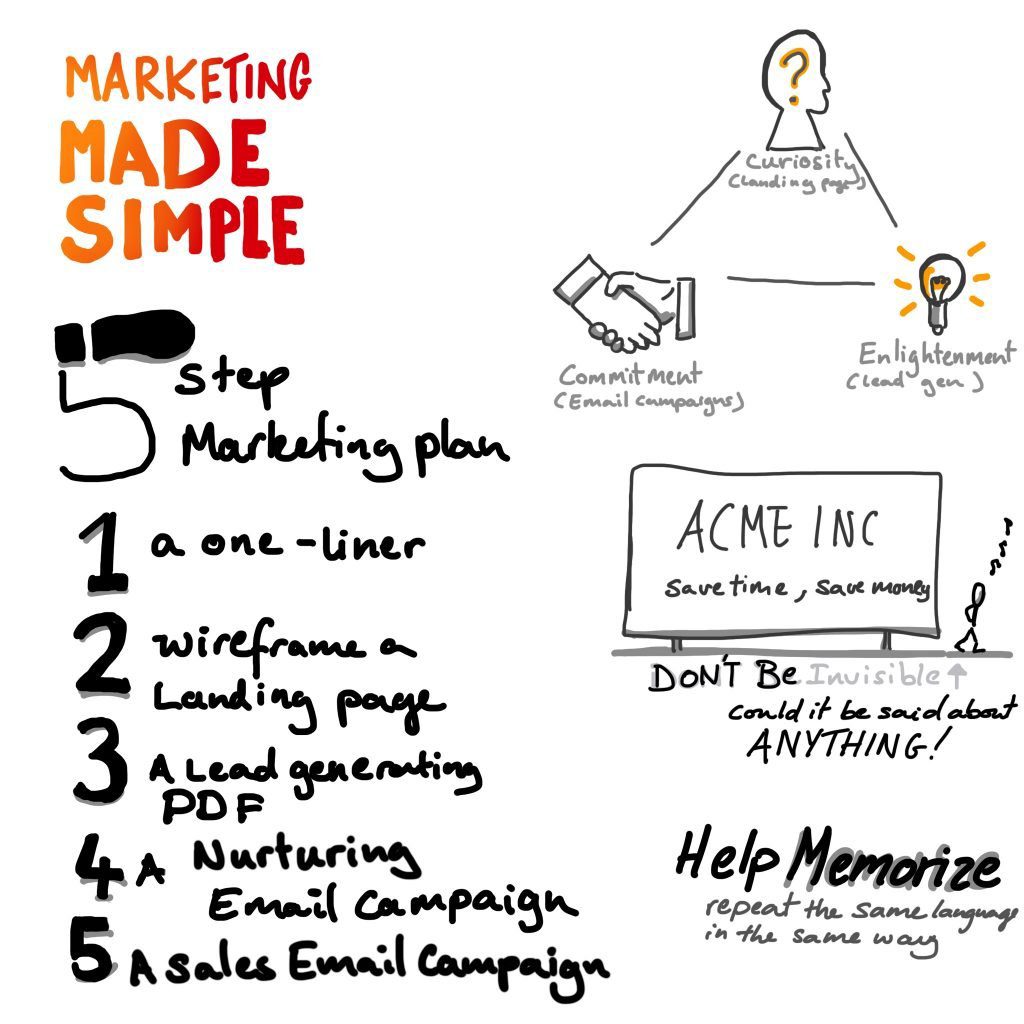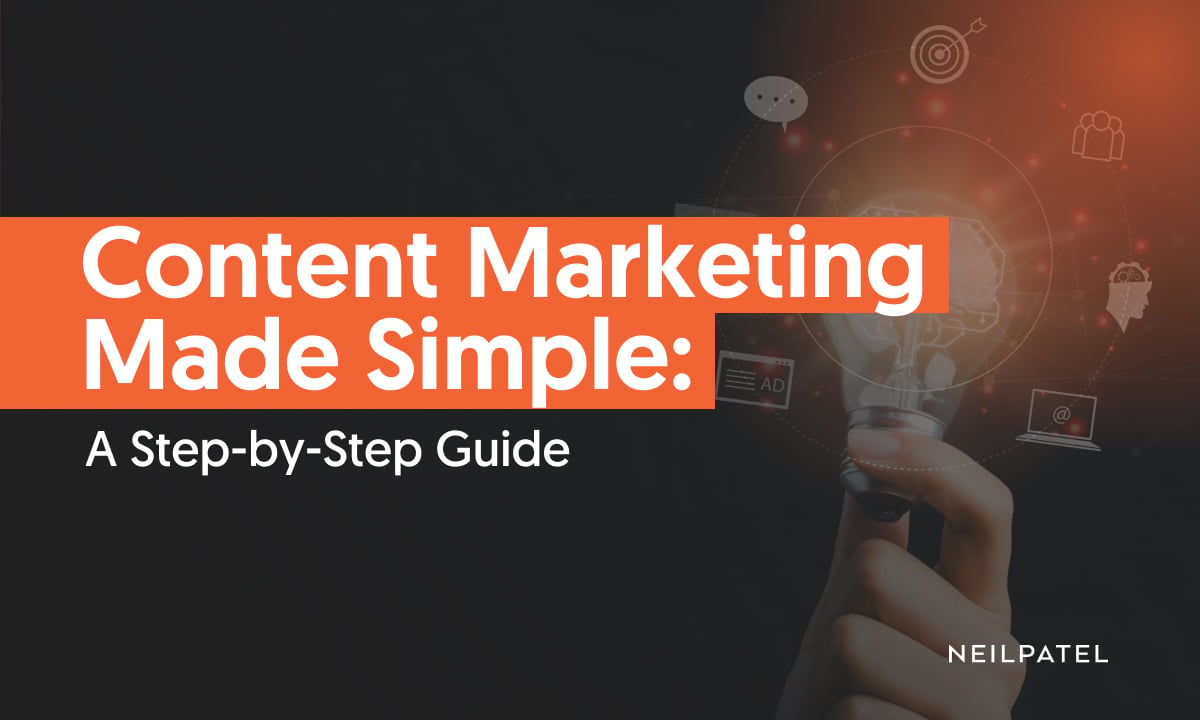Content Marketing Made Simple Content marketing doesn’t have to be complicated. With the right tools and strategies, anyone can create effective content that drives engagement and sales.
In today’s digital world, content marketing is essential for reaching your audience. It’s about creating valuable, relevant content that attracts and retains customers. But it can be overwhelming, especially if you’re new to it. That’s where tools like Roundups come in. Roundups helps you create and monetize buying guides using AI. It saves you time on research and content creation, while also enabling you to earn affiliate commissions. Whether you’re a seasoned marketer or just starting out, simplifying your content strategy with the right tools can make a huge difference. Ready to dive in? Let’s explore how content marketing can be made simple and effective.

Credit: sketchyideas.co
Introduction To Content Marketing
Content Marketing Made Simple helps businesses create valuable content to attract and engage customers. This strategy focuses on delivering relevant information. Enhance your brand’s online presence with effective content marketing.
What Is Content Marketing?
Content marketing means making and sharing useful content. This helps attract and keep customers. The content can be blogs, videos, or social media posts. The goal is to make people trust your brand. This trust can lead to sales and loyalty.
The Importance Of Content Marketing For Your Brand
Content marketing builds trust with your audience. It shows you know your stuff. This trust can turn readers into buyers. Good content also helps you rank higher on search engines. This means more people find your brand. More traffic often leads to more sales. So, content marketing is key for growth.

Credit: androvett.com
Key Features Of Effective Content Marketing
Knowing your audience is vital. It helps create content that resonates. Understand their problems, needs, and desires. This makes your content more engaging and effective.
Quality content is key. It should be informative, engaging, and relevant. Use simple language and clear images. This attracts and retains readers.
Use different formats like blogs, videos, and infographics. Each format appeals to different types of learners. This keeps your audience interested.
SEO is crucial for visibility. Use keywords wisely. Optimize titles, headings, and images. This helps your content rank higher in search engines.
Consistency builds trust. Publish regularly. This keeps your audience engaged and returning for more.
Tools And Platforms For Content Marketing
Content Management Systems help in creating and managing digital content. Popular CMS platforms include WordPress, Joomla, and Drupal. They offer easy-to-use interfaces and templates. CMS platforms are essential for organizing and publishing content efficiently.
Facebook, Twitter, and LinkedIn are key social media platforms. They help in sharing content with a wider audience. Posting regularly on these platforms boosts engagement. Social media platforms are crucial for reaching your target audience.
Mailchimp, Constant Contact, and Sendinblue are popular email marketing tools. These tools help in creating and sending newsletters. Email marketing tools are effective for nurturing leads and maintaining customer relationships.
Google Analytics, SEMrush, and Ahrefs are essential analytics tools. They help in tracking website performance and user behavior. Analytics tools provide valuable insights for improving your content strategy.

Credit: www.withhannahandco.com
Pricing And Affordability
Affordable and straightforward pricing makes content marketing accessible to all. Simple plans fit various budgets, ensuring everyone can benefit.
Cost Of Content Creation
Creating content can be expensive. Hiring writers and designers costs money. Using AI tools like Roundups can save time and money. Roundups helps you create buying guides quickly. You can choose from different plans to suit your budget.
Budgeting For Content Distribution
Distributing your content can also be costly. Paid ads and promotions need budgeting. Free distribution options include social media and email. Roundups allows you to publish guides directly to WordPress. This can save money on distribution.
Free Vs Paid Tools For Content Marketing
Free tools offer basic features. Paid tools provide advanced options and better results. Roundups offers a Free Plan with limited features. Upgrading to Lite or Pro plans gives you more roundups and items. Paid plans can help you earn more affiliate commissions.
Pros And Cons Of Content Marketing
Content marketing helps build brand awareness and trust. Creating regular content takes time and effort. Balancing these pros and cons is key.
Advantages Of Content Marketing
Content marketing can bring many benefits. Build trust with your audience. Increase brand awareness. Drive organic traffic to your site. Improve your SEO rankings. Generate leads and boost conversions. Create lasting relationships with customers. Cost-effective compared to other marketing methods. Engage your audience with valuable content.
Challenges And Drawbacks Of Content Marketing
Content marketing requires time and effort. Creating quality content is not easy. Consistency is crucial but hard to maintain. Measuring ROI can be difficult. Staying updated with trends is essential. Competition is high, making it hard to stand out. Content fatigue can occur among your audience. Budget constraints can limit your efforts.
Specific Recommendations For Ideal Users
Ideal for beginners, this guide simplifies content marketing strategies. Learn to create engaging, effective content easily. Perfect for those new to the field.
Small Businesses And Startups
Small businesses can benefit greatly from Roundups. Use AI to research and create guides. This saves time and money. Publish directly to WordPress with one click. Earn commissions from purchases made through your guides. Customize content to fit your brand and audience.
Established Brands
Established brands can use Roundups to enhance their content strategy. The AI technology helps in comparing products and generating detailed guides. This boosts SEO and engages readers. Earn affiliate commissions while promoting your products. Publish guides remotely and reach a wider audience.
B2b Vs B2c Content Marketing Strategies
B2B marketing strategies focus on detailed, informative content. Use Roundups to create guides that compare products and services. This helps in decision-making for businesses. B2C strategies, on the other hand, should be engaging and easy to digest. Use Roundups to generate appealing buying guides. Share these guides to influence consumer purchases and earn commissions.
Frequently Asked Questions
What Is Content Marketing In Simple Words?
Content marketing involves creating and sharing valuable content to attract and engage a target audience. This helps drive profitable customer actions.
What Are The 5 P’s Of Content Marketing?
The 5 P’s of content marketing are: Plan, Produce, Publish, Promote, and Prove. These steps ensure effective and successful content marketing strategies.
What Are The 3 C’s Of Content Marketing?
The 3 C’s of content marketing are: 1. **Content**: Creating valuable and relevant information. 2. **Consistency**: Regularly publishing and updating content. 3. **Communication**: Engaging with your audience through various platforms.
What Is The 3-3-3 Rule In Marketing?
The 3-3-3 rule in marketing focuses on three key messages, three benefits, and three calls to action. This approach simplifies communication and boosts audience engagement.
Conclusion
Content marketing is straightforward with the right tools and strategy. Start small, stay consistent. Tools like Roundups can simplify your journey. Use AI to create engaging guides. Share valuable content, earn commissions. Save time and money. Create, publish, and monetize effortlessly. Try Roundups for free. Boost your content marketing today.

